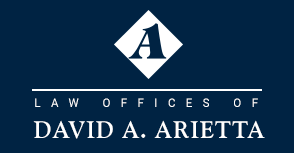Chapter 13 bankruptcy requires that a debtor pay his or her disposable income for a period of 3-5 years.
The ultimate question is how much does the debtor have to pay and for how long. One requirement is that the debtor must satisfy the “best interests of creditors” test. The Bankruptcy Code provides that, if all other requirements are met, the court “shall confirm a plan if … the value, as of the effective date of the plan, of property to be paid under the plan on account of each allowed unsecured claim is not less than the amount that would be paid on the claim [in a chapter 7 case]”.
What that really means is that unsecured creditors should receive an amount with a present value equivalent to the value of property that would be distributed to them in a chapter 7.
An example: George is trying to figure out his monthly chapter 13 plan payment. His only assets are three vehicles with a combined value of $40,000. Assume that under California law, he can only exempt up to $25,000 of the vehicle equity, leaving $15,000 of non-exempt equity. The “best interests of creditors” test kicks in to ensure that his creditors receive at least $15,000 over the life of his chapter 13 plan. The court would not confirm his chapter 13 plan If he was proposing to pay $200 per month for 60 months ($12,000). He would have to pay closer to $300 to make his case work. So in essence the test sets a minimum level for the plan payments.
David A. Arietta has reviewed many situations over the years. One of the most common is when clients come to him with low cash flow and credit card debt but then own real estate with a lot of equity. This can especially be commonplace with older clients. They may have been living in the house for many years, accumulated credit card debt and only have social security income. Sometimes in these situations the “best interest of creditors” can cause problems in trying to file for bankruptcy relief. A lot of equity can mean that general unsecured creditors need to be paid a certain amount. If the client has low cash flow he or she cannot afford the higher monthly payment required in a Chapter 13. Chapter 7 may not be an alternative because a bankruptcy trustee could decide to liquidate the property to access the non-exempt equity. Careful consideration and planning is needed in these situations.
Chapter 13 is complicated and many other factors have to be considered. The Law Offices of David A. Arietta has been successfully representing Chapter 13 debtors for over 25 years.

